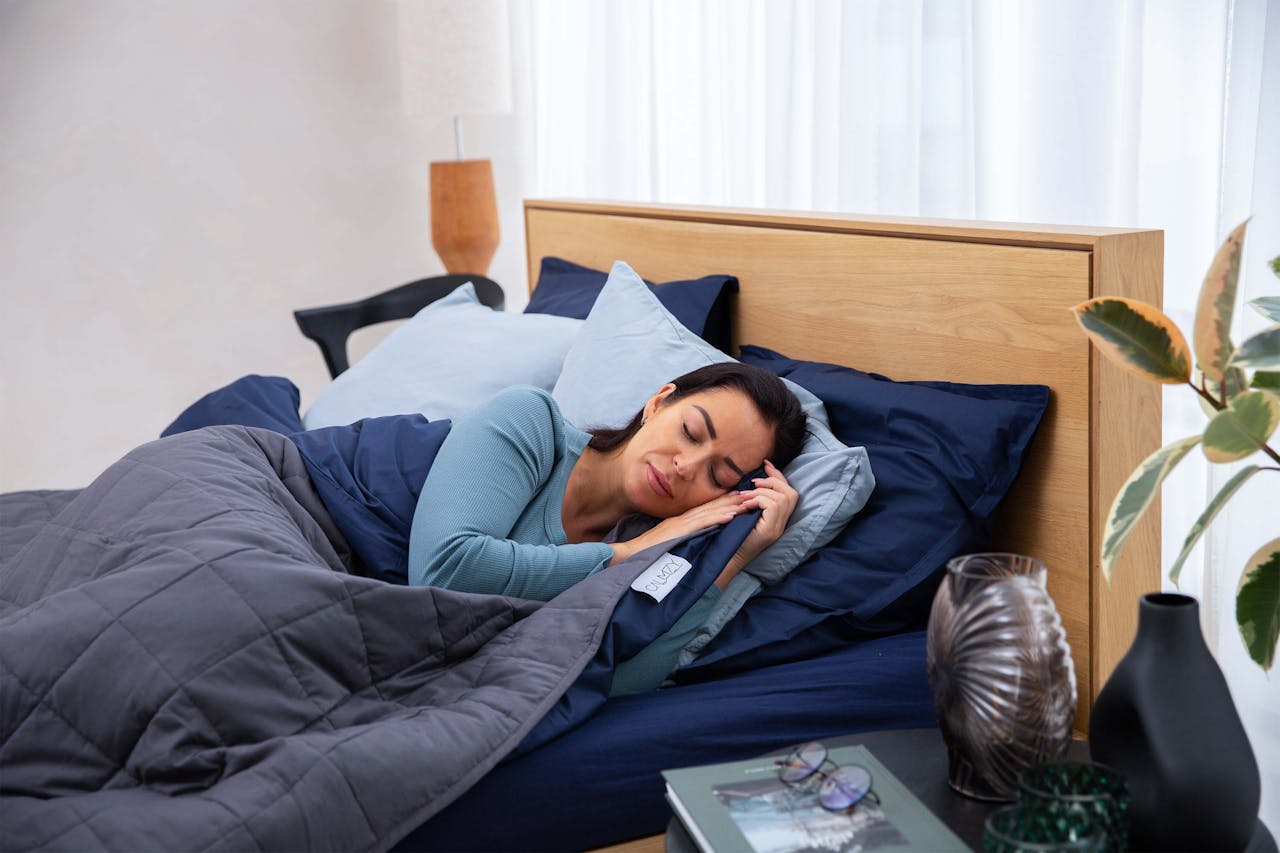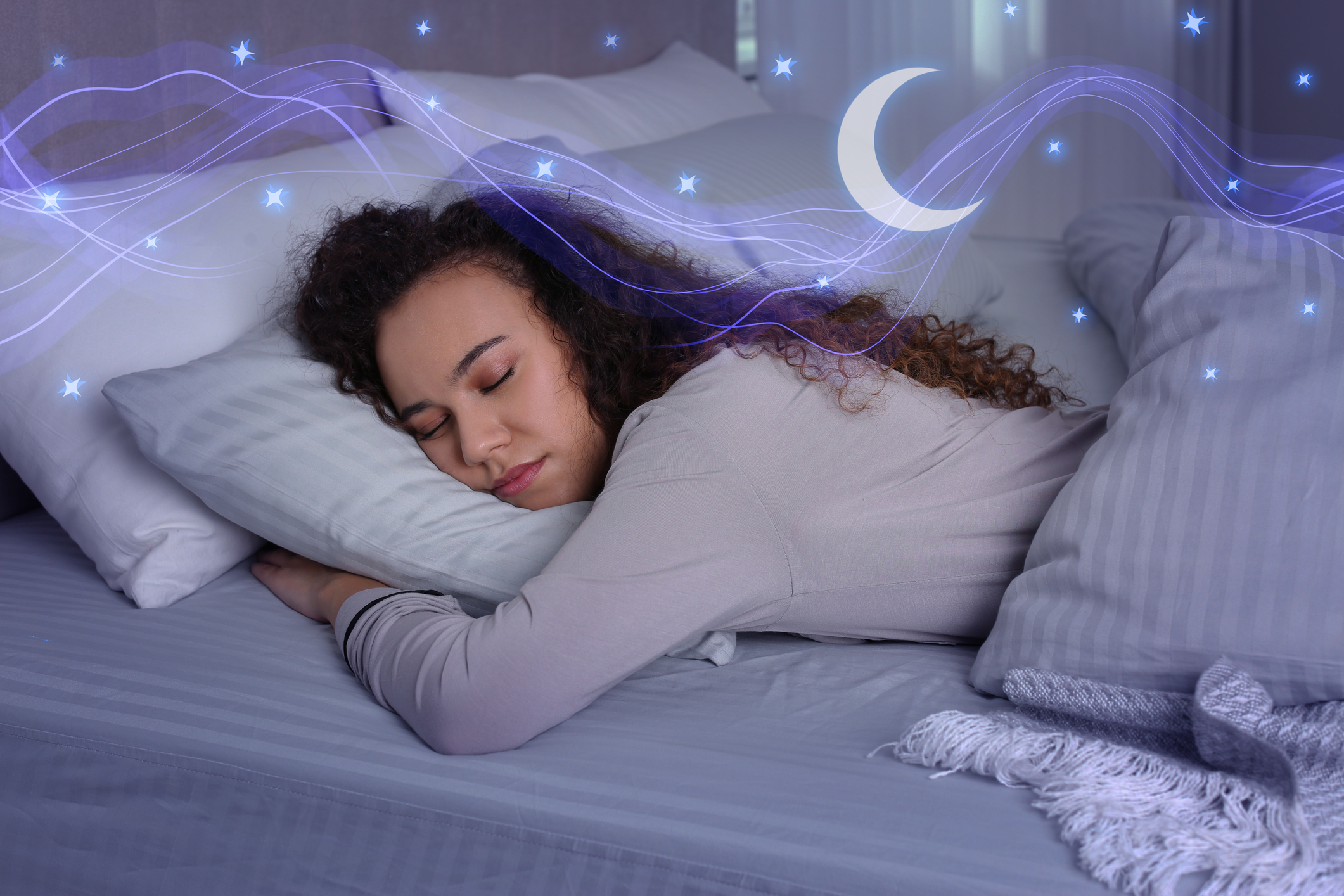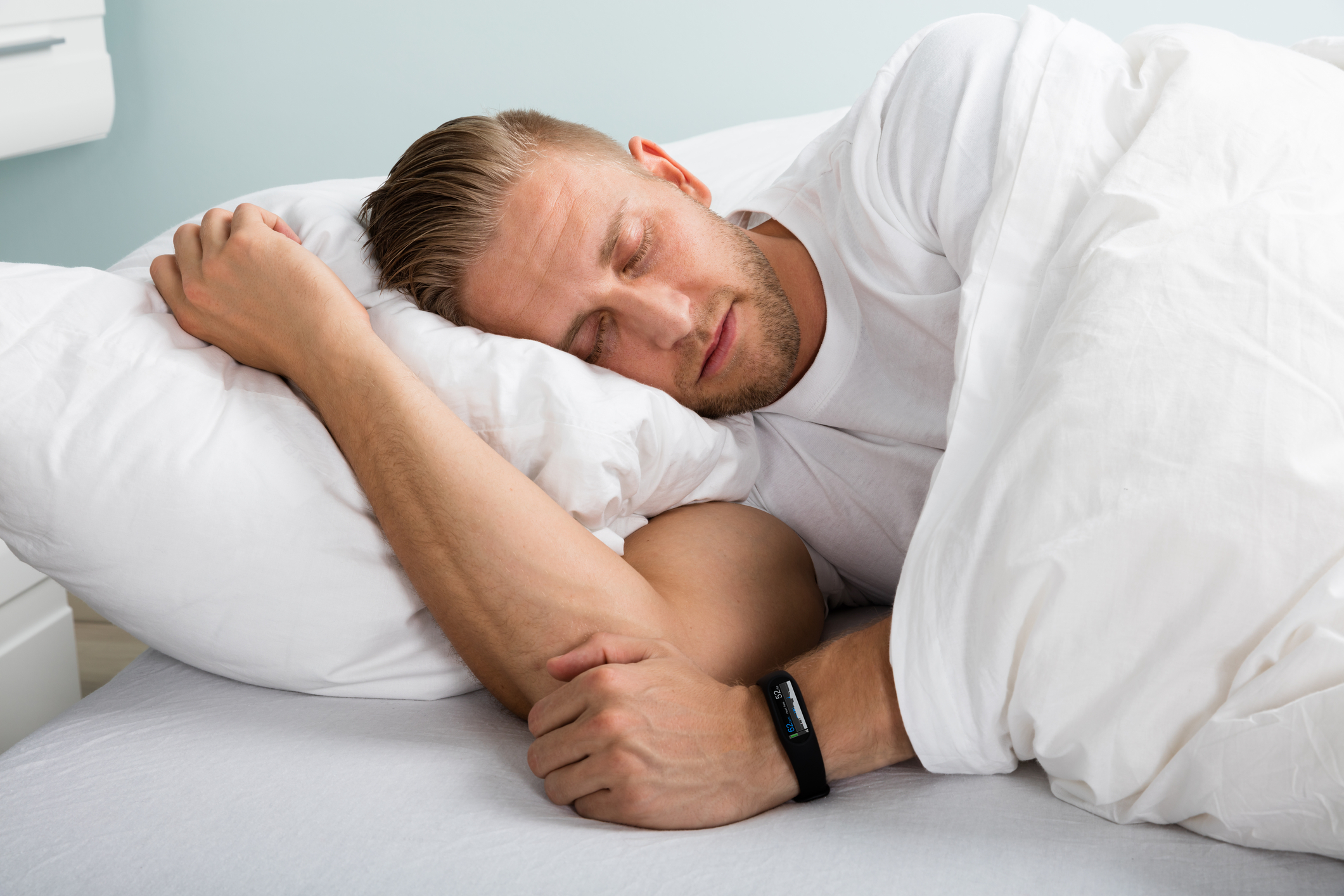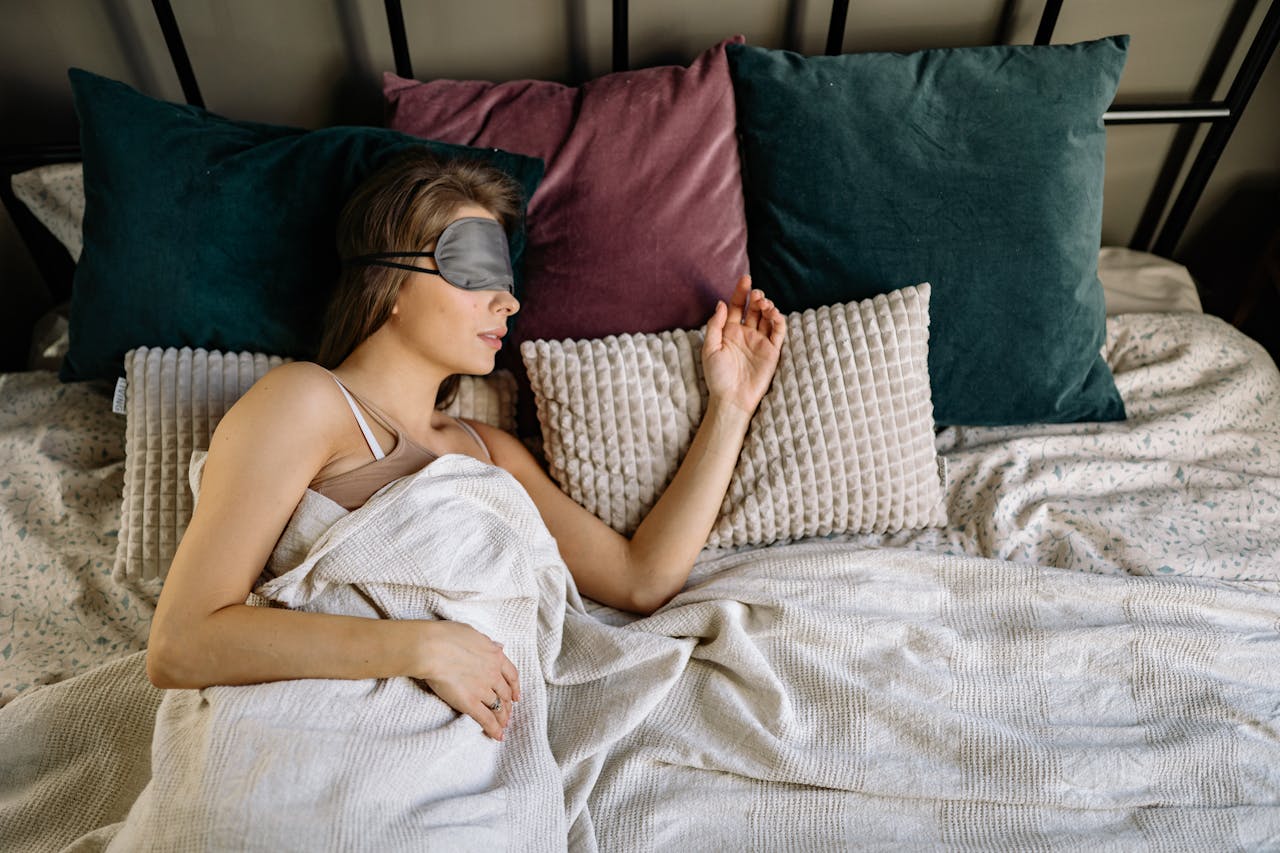A deep dive into the science, the risks, the benefits – and how to make it work in your life
When I tell friends I aim for about 7-7.5 hours of sleep per night, they often ask: “Is that enough? Too much? What’s ideal?” The truth is, while “perfect number” can vary between us, science increasingly suggests there’s a sweet spot – and sleeping too little or too much and/or on a wildly inconsistent schedule may raise health risks. (Yes, I presented them all below, with studies to read more if you want)
In this article, I’ll focus on how many hours of sleep adults need for optimal health; what happens when you sleep less than ~6-7 hours; what happens when you sleep more than ~8 hours (yes, there are risks); the benefits of getting “enough good sleep”; and practical takeaways. I’ll also note cautions and disclaimers (because sleep is nuanced, and individual needs vary).
What do guidelines and studies say about how much sleep we need?
According to the U.S. government’s health site, most adults require 7 or more hours of sleep each night for optimal health. They also emphasise that good-quality sleep and a regular sleep-wake pattern matter.
In Europe, experts with the European Sleep Research Society note that adults should aim for about 7 or more hours of sleep regularly and emphasise that deficits below this threshold pose risks to health.
In the Asia-Pacific region, a consensus statement covering children and adolescents stresses the importance of adequate sleep duration (typically 7–9 hours or more for healthy adults) within a 24-hour movement behaviour framework.
A large meta-analysis (Shen X. et al., 2016) found a U-shaped relationship between sleep duration and all-cause mortality: compared with about 7 hours of sleep/day, sleeping 4, 5, 6, 8, 9, 10 or 11 hours was associated with respectively higher risk of death. The authors conclude: “7 hours/day of sleep duration should be recommended to prevent premature death among adults”.
More recently, a major study from Korea published in 2025 (Park S.J. et al., “The impact of sleep health on cardiovascular and all-cause mortality in the general population”, Scientific Reports) looked at sleep duration + regularity in ~9,641 adults aged 40-69, with a median follow-up of ~186 months (~15½ years).
Their key findings:
- Sleep duration > 8 hours was associated with increased all-cause mortality (adjusted hazard ratio [HR] = 1.27; 95 % CI 1.04-1.54) compared with the reference group of 7-8 h.
- The combination of < 7 h + irregular sleep had a higher mortality risk (adjusted HR = 1.28; 95 % CI 1.04-1.58) vs. 7-8 h with regular sleep. Nature +1 Long sleep (> 8 h), even if regular, was associated with increased mortality (adjusted HR = 1.26; 95 % CI 1.01-1.58) vs the ideal 7-8 h/regular group.
- Sex-specific results: In men, < 7 h/irregular or > 8 h/regular both increased risk. In women, > 8 h + irregular showed a higher risk.
So this supports the notion that not just how much you sleep, but also how consistently you sleep matters.
Bottom line: For most adults, shooting for around 7 to 8 hours of sleep per night, and maintaining a consistent sleep schedule (going to bed and waking at similar times), is strongly supported by evidence as a healthy target.
The night routine matters as well, and as I recently covered it in an article, I am including it towards the end of this article, along with other relevant articles for you that I recently published.
Why Your Circadian Rhythm Matters for Healthy Sleep
ID 247770593 ©Chernetskaya | Dreamstime.com
Your circadian rhythm, often called your internal body clock, plays a huge role in how well you sleep and how rested you feel the next day. It regulates when you naturally feel awake, when you feel sleepy, your body temperature, hormone production (including melatonin), metabolism, and even your mood.
From a health perspective, your circadian rhythm acts like the master conductor of your sleep–wake cycle. When it’s aligned – meaning you go to bed and wake up at roughly the same time every day – your brain knows exactly when to enter deep, restorative sleep stages. That’s one reason why research shows that regular sleep schedules are just as important as the number of hours you get. (As you can see, this ties perfectly to the Korean study showing higher mortality in irregular sleepers.)
When your rhythm is disrupted – from late nights, inconsistent bedtimes, scrolling on your phone until midnight, shift work, or travel – your body may struggle to fall asleep, stay asleep, or reach high-quality, deep, and REM sleep. Over time, this can increase risks associated with sleeping too little or too much, including fatigue, poor cognitive performance, mood swings, metabolic issues, and cardiovascular strain.
To get the ideal 7–8 hours of healthy sleep each night, keep your circadian rhythm stable. Your body thrives on consistency – it’s one of the simplest and most science-backed ways to improve sleep quality naturally.
How Your Body Knows When to Sleep (and Why Timing Is Everything)
Your body has a built-in system that determines when you should sleep – not just how much. This system is a combination of:
- Your circadian rhythm
- Sleep pressure (adenosine buildup throughout the day)
- Light exposure (especially morning sunlight and evening darkness)
When evening comes and light levels drop, your brain’s pineal gland produces melatonin, the hormone that signals your body it’s time to wind down.
About 2 hours after melatonin rises, your body enters its most natural sleep window – the period where falling asleep is easiest and sleep quality tends to be highest.
If you consistently push past this window (for example, staying up to midnight or 1 AM), your brain gets a “second wind.” Cortisol rises again, alertness increases, and falling asleep becomes harder – even if you’re exhausted.
Morning light exposure resets your circadian clock each day. That’s why waking up at the same time every morning, even on weekends, dramatically improves sleep quality, energy, and mood.
This is also why excessive screen time at night – especially with bright blue LED light – can delay melatonin and make a “7–8 hour sleep goal” much harder to achieve.
Good sleep isn’t just about the total hours. It’s about timing your sleep in sync with your biology. Align your sleep with your body’s natural rhythm, and the benefits multiply: deeper sleep, better morning energy, improved mental health, and a more stable mood.
What happens if you sleep less than ~6-7 hours? (Risks of short sleep)
ID 89185872 ©Andrey Popov | Dreamstime.com
Let’s dig into the consequences of getting insufficient sleep.
Physical health risks
Adults who regularly sleep less than 7 hours per day are more likely to have chronic conditions such as heart disease, stroke, diabetes, and obesity.
Sleep deprivation affects the cardiovascular system, metabolism, immune function, hormone regulation, and weight. It increases stress hormones (cortisol), pro-inflammatory markers, and insulin resistance.
For example (the same first article cited in the previous section), a study of healthy non-obese adults found that those who self-reported sleep duration less than 6 h/day had an increased risk for developing multiple cardiometabolic risk factors.
Cognitive & mental health risks
If you do not get enough sleep, it will not only affect your physical body, but also your mind. Not only will you feel tired – I mean, this is the most common symptom, but other, more relevant and important things happen.
Less sleep impairs attention, working memory, decision-making, and emotional regulation, and increases the risk of mood disorders (anxiety, depression).
The brain benefits of sleep are well documented: for example, a University of Utah article notes that getting at least seven hours is essential for brain health – memory consolidation, brain “cleaning” via the glymphatic system, etc.
Longevity/mortality risk
While the Korean study mentioned above found the association for < 7 h was not statistically significant in the fully adjusted model (adjusted HR = 1.11; 95% CI 0.97-1.27 for <7 h) in that cohort.
But the broader meta-analysis (cited in the first section of this article) found clear evidence: sleeping 4-6 hours was associated with a higher all-cause mortality risk vs ~7 hours.
Thus, while individual risk will vary, there is convincing evidence that consistently sleeping significantly less than ~7 hours raises the risk of many adverse outcomes.
My personal note
I try to avoid nights where I get under 6 hours regularly – because I can feel the toll: slower thinking, mood drag, more cravings.
If you’re managing high-stress work, travel, and parenting, this is especially relevant.
What about sleeping more than ~8 hours? Yes, there can be risks too
This is less well-understood, but increasing evidence supports a “too much sleep” problem – especially when combined with irregular patterns or underlying health issues.
The Korean 2025 study found that sleep duration > 8 hours was independently associated with increased all-cause mortality (HR = 1.27) compared with 7-8 hours.
The meta-analysis by Shen X. et al. (2016) found risk for all-cause mortality progressively increased going above 8 hours: for 9 h/night RR = 1.21; 10 h/night RR = 1.37; 11 h/night RR = 1.55, compared to ~7 h.
Why might longer sleep be associated with worse outcomes? Some possibilities:
- Long sleep may be a marker of underlying disease, inflammation, depression, or unrecognized sleep disorders (like obstructive sleep apnea).
- More time in bed does not always equate to more high-quality restorative sleep – it may reflect fragmented or poor-quality sleep.
- Excessive sleep may disrupt circadian rhythms, reduce physical activity, etc.
The Korean study also found that the combined effect of > 8 h and irregular sleep patterns (especially in women) further increased mortality risk.
Important caution
This does not mean that everyone who sleeps > 8 hours is doomed or that 8+ hours is always bad. It means that excessive sleep duration may be a marker or contributor of health risk and should trigger reflection on sleep quality, schedule, lifestyle, and underlying issues.
For example: if you sleep 9 h but wake up unrefreshed, have daytime fatigue, or irregular sleep timing, you’d want to investigate further (sleep disorders, medical conditions, etc.).
What are the benefits of “enough good sleep” (≈ 7-8 hours + good quality + regular timing)
Let’s shift now to the positive side:
Physical health & longevity benefits
Reduced risk of chronic diseases: According to the CDC’s “About Sleep” page (already linked above), getting enough sleep helps you stay at a healthy weight, reduce stress, improve heart health, lower risk of type 2 diabetes, heart disease, and stroke.
Better immune function: During sleep, the body repairs, fights infections, produces important hormones, and performs metabolic “housekeeping”.
Cardiovascular benefits: As the Korean study showed, the healthiest group (7-8 h regular) had lower all‐cause mortality and MACE risk compared to >8 h or <7 h + irregular.
Longevity: As the meta-analysis found, ~7 hours/day was the sweet spot for the lowest risk of premature death.
Mental health & cognitive benefits
Brain health: The article from the University of Utah describes why at least seven hours is essential – memory consolidation, toxin “clearance” (glymphatic system), and improved cognitive performance.
Mood and emotional regulation: Regular good sleep helps reduce irritability, anxiety, and depression risk. In contrast, poor or short sleep is linked with mood disorders.
Productivity, attention, decision-making: Adequate sleep supports better concentration, creativity, workplace performance, safer driving, and fewer errors.
Consistent schedule benefits: As emphasised in the Korea study and other articles, not only hours but regularity matters – irregular sleep schedules reduce the benefit of good duration.
My reflection
When I get 7-8 hours and wake up around the same time each day (even weekends), I feel sharper, calmer, and more in control. On days when I compromise that (say, travel or late work), I definitely notice slower reaction time, weaker mood, more “brain fog”.
So from a personal and professional standpoint (you know I coach, market, travel, write, I have a teen, etc.), the benefits of “sleep needs for busy professionals” are very real.
So what age / individual variation matters?
No one size fits all. Your “ideal hours of sleep” may differ by age, life stage, genetics, health status, and lifestyle.
Some quick points:
- Adults (18–64 years) generally benefit from 7–9 hours (per many guidelines).
- Older adults (65+) may have slightly different patterns and may wake earlier or have more fragmented sleep, but the principle of consistent, good quality matters.
- Teenagers, children need more sleep (8–10h teens, more for younger children) – but that’s beyond our “adult” focus.
- Individual variation: some people truly feel rested and function well on ~6.5h, some need closer to ~9h; but the population data shows best outcomes cluster around ~7–8h.
- Work/lifestyle/travel/lights/screens: factors like shift work, screen time, travel across time zones, and parenting can all affect your effective sleep and quality.
- Underlying health: if you have a chronic disease, mood disorder, pain condition, or sleep disorder (sleep apnea, restless legs), your “sleep needs” and what counts as “good sleep” might differ. In those cases, you should consult a healthcare provider.
Practical guidance: how to aim for and maintain “ideal sleep”
Here are actionable tips based on science + personal reflection.
- Aim for ~7 to 8 hours of sleep per night (valid for most adults) – and monitor how you feel (alertness, mood, performance).
- Keep a consistent sleep-wake schedule, including weekends if possible. The Korean study emphasised regularity.
- Create a sleep-friendly environment: dark, cool, quiet bedroom; minimal screens 30 + minutes before bed; relaxing pre-bed routine.
- Limit caffeine, alcohol, and heavy meals close to bedtime, because they disrupt sleep quality.
- Address sleep quality, not just quantity: If you sleep 8+ hours but wake up unrefreshed, or you wake frequently, you may still have poor sleep health.
- Watch for underlying issues: If you need >9h regularly, or sleep <6h regularly and feel fatigued, consider checking for sleep disorders (e.g., sleep apnea), mood issues, or medical conditions.
- Lifestyle supports good sleep: regular physical activity (but avoid intense exercise right before bed), balanced diet, stress-management, daylight exposure in the morning, and limiting screen/time zone disruptions.
- Travel/work/life hacks: If you are a busy professional, traveler, or parent, plan for “anchor” wake-up time, minimize late nights, power nap judiciously (avoid long naps late in the day).
- Track how you feel: Over time, you’ll discover what your “ideal hours of sleep” are. Use a simple journal or tracking tool: note bedtime, wake time, mood/performance next day.
- Be flexible but disciplined: Life happens (calls, travel, social events). Occasional short or long nights are okay. Chronic deviation (weeks of too little, too much, irregular) is what the risk data relate to.
Key Facts (and how to integrate them in your life)
For most adults, aim for around 7 to 8 hours of sleep per night and keep a consistent sleep-wake schedule – this is tied to the lowest mortality, best health outcomes.
Sleeping less than ~6-7 hours on a regular basis increases the risk of chronic disease, cognitive decline, mood issues, and earlier mortality.
Sleeping more than ~8 hours regularly (especially with an irregular schedule) is also associated with higher all-cause mortality and may indicate underlying problems.
Sleep is not just about quantity – it’s also about regularity, quality, and staying aligned with your circadian rhythm (your internal clock).
Good sleep supports heart health, immune function, mental health, productivity, longevity, and general well-being.
If you’re a busy professional, parent, traveler, or working odd hours: prioritise sleep as a foundational part of your productivity and health strategy (not “luxury”).
If you regularly get too little or too much sleep, or you don’t feel rested, consider consulting a healthcare provider or sleep specialist.
My reflection and invitation
I try to get 7 hours of sleep per night. When I travel, I aim for 6.5+ as a minimum. I find that when I fall below that for several nights, my productivity, mood, and health (yes, even digestion) suffer. On the flip side, when I aim for 9 or 10 hours, I sometimes feel groggier and less sharp – perhaps because the extra time doesn’t always translate into deeper restorative sleep.
If you’re reading this and thinking: “I know I’m not getting enough / I seem to sleep too much / I wake up tired”, treat it as a signal. Your sleep habits might be telling you something important about your health, lifestyle, stress, recovery, or environment.
One invitation: Over the next week, try a “sleep experiment”:
- Pick a consistent wake-up time every day (including weekends) that fits your lifestyle.
- Aim to give yourself 7-8 hours in bed before that wake-up.
- Track how you feel each morning (alertness, mood, clarity, any aches).
- Adjust the bedtime so you wake up feeling the best.
- Notice if irregular nights (late evenings, travel) correlate with worse next-day performance.
By doing this, you’re treating your sleep not just as downtime, but as a strategic asset for your health, your career, your story.
Disclaimer & caution
This article is for general informational purposes only and does not replace professional medical advice.
Individual sleep needs can vary significantly due to age, genetics, underlying health conditions, medication, lifestyle, and other factors.
The studies referenced (for example, the Korean cohort study) show associations – not necessarily direct causation. Sleeping longer may signal an underlying disease rather than cause it.
If you have persistent sleep problems (insomnia, excessive sleepiness, loud snoring, pauses in breathing, leg movements), you should consult a sleep specialist or healthcare provider.
Other factors beyond duration matter hugely: sleep quality, sleep architecture (deep vs light sleep), sleep disorders, environment, schedule consistency, light exposure, stress, etc.
This article emphasises “healthy adults with relatively typical schedules”; shift-workers, extreme athletes, parents of young children, and people with chronic illness may have different needs.
I recently presented you on this site some studies with different recommendations of EASY things to do to live happily and long:
- Scientists Reveal the Unexpected Longevity Habit That Costs Nothing
- Scientists Say This Overlooked Habit Could Add Years to Your Life
- Scientists Say People With This Mindset Are Far More Likely to Reach Age 90+
- Add Decades, Not Just Years: 8 Habits That Could Add 20–25 Years to Your Life (Backed by a Massive Study)
- Want a Longer, Happier Life? Scientists Say This 1-Hour Habit Could Be the Key
- Want to Live Longer? Studies Say These Mental Habits May Help (No Sweat Required)
- Eat Earlier, Live Longer? What a New Study Says About Breakfast Timing, Aging, and Longevity
- Simple daily habits for a healthier mind
- How to De-Clutter Your Mind, Backed by Science
- The Personality Traits That Can Help You Live Longer (and Be Happier)
- How to Build Real Self-Esteem That Lasts (Backed by Science, Not Buzzwords)
- 17 Signs You Are Happier Than You Think
- 11 Signs You Are More Intelligent Than You Think
- Things People With High Self-Esteem Rarely Do
- How to Reduce Sugar Intake Naturally
- Science-Backed Benefits of Eating Walnuts (and How Much You Should Actually Eat)
- Things I Didn’t Expect to Happen When I Turned 40 (But Totally Did)
- 15 Signs You’re More Emotionally Intelligent Than You Think – Backed by Science
- How to Rewire Your Brain for Calm, Focus, and Joy in Midlife
- Build a Night Routine That Boosts Longevity – Science-Based
Photo sources, except Dreamstime: 1, 2, 3








